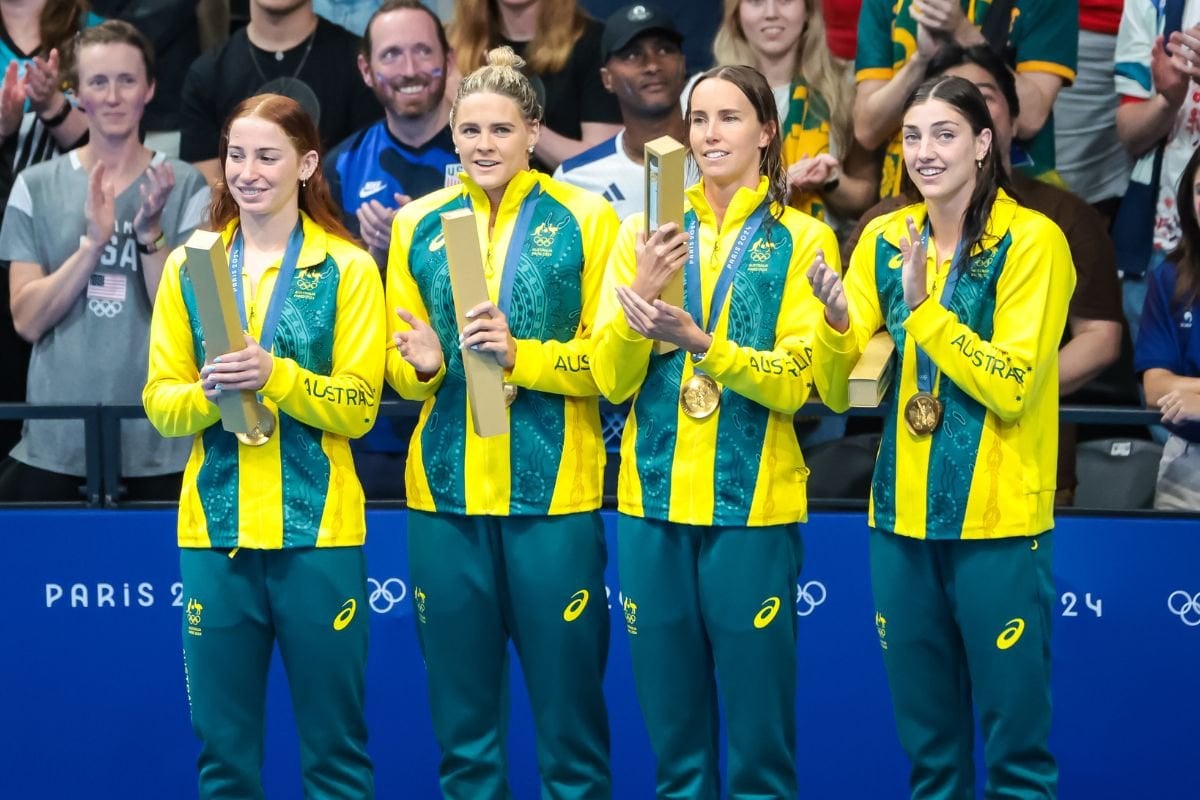
In the cool waters of the Paris Olympic pool, Australia's women's 4x100m freestyle relay team etched their names into the annals of sporting history on the morning of Sunday, July 28.
Mollie O'Callaghan, Shayna Jack, Emma McKeon and Meg Harris touched the wall in an incredible 3:28.92 time, securing Australia's fourth consecutive gold in this event.
Australia's women's team stood proudly atop the podium, gold medals slung around their necks in what was undoubtedly yet another proud moment for the athletes, and for the nation.
Yet, in the moments following this extraordinary feat, a handful of words from the commentary box cast a shadow over their glory.
"Well, the women just finishing up," remarked EuroSport commentator Bob Ballard. "You know what women are like… hanging around, doing their make-up."
Bob Ballard hang your head in shame and get off the broadcast and back to the 1930s
— Emily Benammar (@EmilyBenammar) July 28, 2024
Commentating for EuroSport he’s used a sexist slur as the Aussie women RIGHTLY celebrated together
“The women just finishing up. You know what women are like, hanging around, doing their make-up” pic.twitter.com/JRpsLUc15m


Top Comments